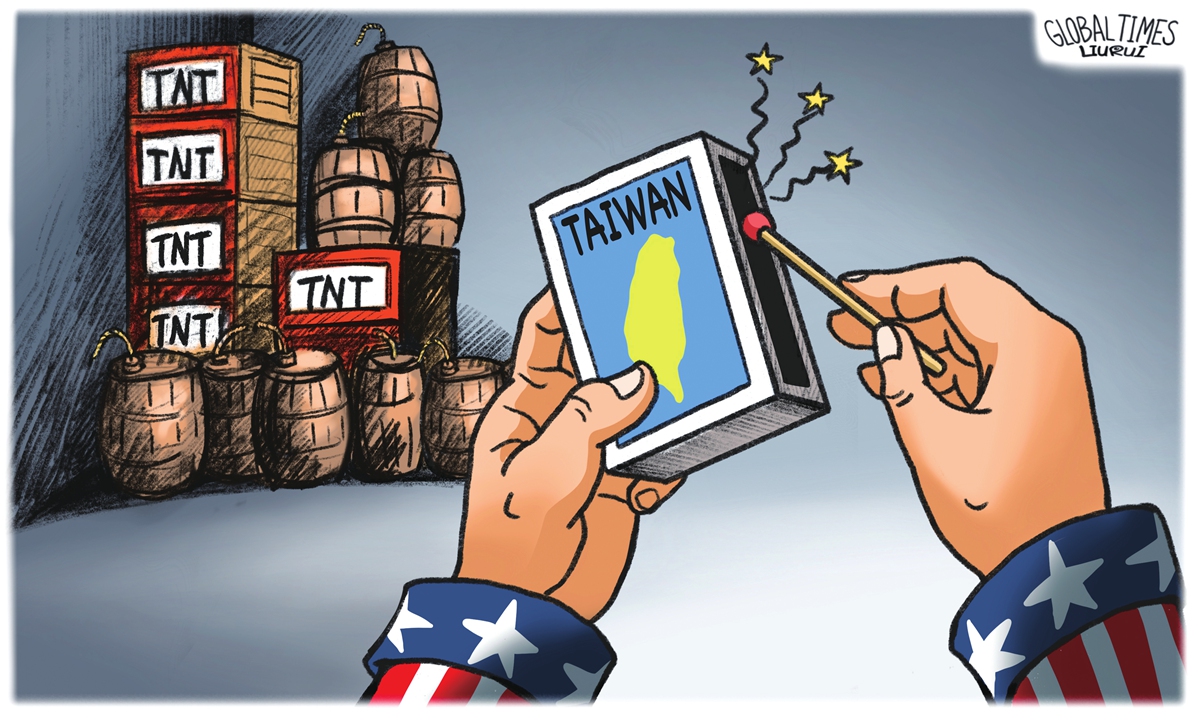
Illustration:Liu Rui/GT
I think that through Nancy Pelosi's provocative trip, the US intends to send five main messages. First of all, it's a provocation against China, and the US wants to look at the Chinese reaction, or how deep China and Chinese policy may go to react to this Taiwan question.
The second point is that the US wants to show that they could act independently from the Chinese declaration about Taiwan question and one-China policy. That's why the US, for the last more than 40 years, has supplied a lot of weapons to Taiwan island to increase its military capacity.
The third point: The US wants to see that the Chinese mainland will launch military action against [the island of] Taiwan, because in that case, China will be blamed as an aggressor as were Russia in Ukraine. If China doesn't, they will say that China is a chicken and that the position of China is really weak. The US wants to put China into a political and military crisis.
The fourth point is very important: It's being done especially before the 20th [National] Congress of the Communist Party of China to try to destabilize the situation in China. The US tries to push from different sides and from different dimensions.
And last but not least, the US really wants to drag the world into a global crisis, because all of us understand that when it was a question between the Chinese mainland and Taiwan. But right now, the US wants to make this conflict international.
So it means that if something happens in the Taiwan Straits, the global situation will change instantly in just one moment. And it will be a much more serious crisis than what we have right now in Ukraine. And because world trade is very heavily dependent on this region [Asia-Pacific region], not just because of China, but also because of Japan and South Korea, it means that the US really wants to crash the normal situation in the Asia-Pacific.
China has a lot of means regarding how to react to the situation. For example, China could think about creating a new, larger camp of friendly countries, for example, including Russia and other nations, to establish a new world order step by step, not just in a few days and not just in few years. It could also launch a new logistic chain and step by step, to bring in more other countries, including in Asia and Africa.
We should understand that it's not a question only about Pelosi's visit to Taiwan, as the US policy will be long-lasting. One day Biden will leave office, but regardless, the new US president will more or less follow the same policy. So it means that we should understand that it's not a question of negotiations or bargaining. It's a question of the re-establishment of the new world order.
The article was compiled by Global Times reporter Xia Wenxin based on an interview with Alexey Maslov, Director of the Institute of Asian and African Studies of Moscow State University. opinion@globaltimes.com.cn




